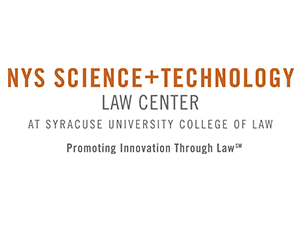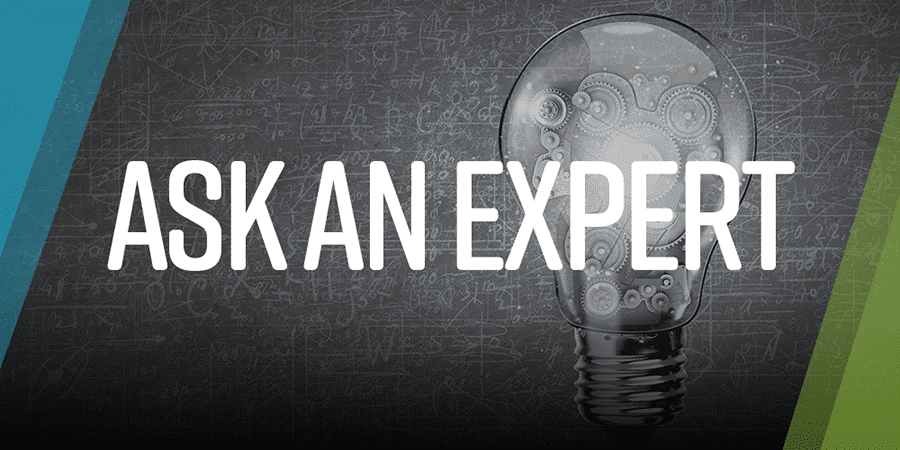 For this edition of “Ask an Expert” we interviewed Chris Horacek, Commercialization Expert for the New York State Science & Technology Law Center at Syracuse University College of Law, and Project Advisor for the Innovation Law Center (ILC).
For this edition of “Ask an Expert” we interviewed Chris Horacek, Commercialization Expert for the New York State Science & Technology Law Center at Syracuse University College of Law, and Project Advisor for the Innovation Law Center (ILC).
The Law Center, a FuzeHub partner sponsored by Empire State Development/NYSTAR, has been a leader in technology commercialization for nearly a decade. Since its inception, it has assisted hundreds of companies and institutions in their quest to commercialize emerging technologies.
The ILC, which was established in 1990, was the first program of its kind in the country to combine science and technology development with legal analysis and hands-on experience.
What is the purpose of the Law Center, and how can small- and mid-sized manufacturers take advantage of it?
Most of our clients are either start-up companies or researchers who are working on a technology and are thinking about starting a company. Essentially all of our clients want help in one or more of the following three areas.
The first area has to do with intellectual property, and those questions center on the best method of protecting their technology—patents, copyrights, trade secrets or some combination of those.
The second big area is understanding the market—what is the market segment they are going to be in, what is the industry they are going to be in, who are the competitors, what do the competing products look like—that kind of information.
The third area is that for some products, there is the question of what sort of regulations apply to the design and development, manufacture and sale of the product, because some of those regulations impose high costs on the business for compliance. The client needs to understand what the impact of the regulations are.
So, those are the three big areas that clients come to us seeking help with, and at the end of the day what they really want is a report that will help them develop an intelligent business plan. And that is what we try to give them.

Let’s talk more about intellectual property. What do entrepreneurs need to know?
When it comes to intellectual property, the first thing our clients need to understand is the relative importance of IP protection to their company. Because frankly, there are some businesses for which IP protection is not that important. There are others for which it is very important. We tend to get companies with high-technology products and so IP protection does tend to be an issue for them.
The biggest question that usually comes up is should they try to seek a patent for their technology, or should they rely on one of the other types of protection. A patent is by far the most expensive type of IP protection (up to $10,000 in legal costs, plus fees) and is also the most difficult to get. You can simply register a copyright, but you have to apply for a patent and not everyone gets one. For a trade secret you don’t have to register it, you don’t have to apply for it, all you have to do is keep it a secret.
How does the Law Center help innovators make the decision to apply for a patent or not?
The first thing the students will do is what we call a prior art search which includes a patent landscape. We go out and look at existing patents and published literature that covered the technology to find out whether the client’s technology is patentable. In order to be patentable, it has to be new and it has to be non-obvious, meaning there is a little-above-average creativity involved in what they’ve done. The students will find the prior art—the stuff that is already out there—and once we identify those references, the students will analyze them and point out certain things, such as ‘there is a chance your technology will be found obvious because it is similar to this tech in this way…’ The patent landscape tends to be very important in helping the client decide whether they want to contact a patent attorney to apply for a patent. We don’t prosecute patents or compete with IP law firms.
Some clients who come to us already have a patent application pending or they have a patent already. In that case we may still do a patent landscape for them, for two reasons. One is that just because a patent is issued, doesn’t mean it’s valid. There is a presumption that it’s valid, but patents can be invalidated because the examiner didn’t find all of the most relevant prior art. Two, sometimes clients want to know how strong their patent is. Not all patents are equal. So we will do the same landscape, but the focus isn’t on patentability. It’s on validity and the strength of their patent.
What do you tell clients whose technology is likely not patentable?
Our role is to advise clients about what a patent examiner, investor or competitor will find if they complete a search. Sometimes it does not make sense to pursue a patent. If we go out and do a patent landscape and find a patent that is virtually the same as theirs, we show them they can’t meet the novelty element required for a patent. There may or may not be a trade secret component. And then of course if there is nothing to copyright they don’t have that. In those cases, we point out that there have been many successful businesses that have no IP protection, who are out there competing on quality and price. You don’t always need IP protection to win.

